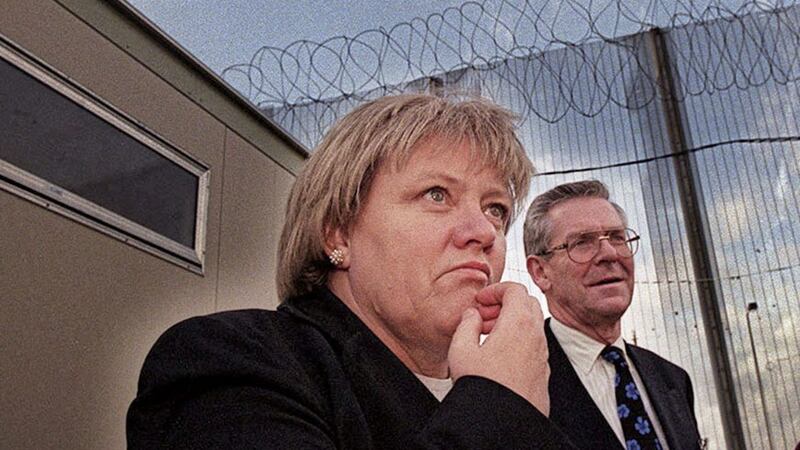Readers of this paper, it is safe to say, tend to include an impressive number interested, even fascinated, by history. Which is being written around us at this moment – though as they pull together facts, analyse and construct their overviews, some writers appear unaware of their own bias.
Some of that bias is in all of us. Including the people who drafted the ‘state’ or official papers released in recent days, senior civil servants and diplomats in two governments and what has passed for government here, the Northern Ireland Office. Historians pore over these papers, now and in times to come. The latest batch, even censored and often heavily redacted includes the usual range of middle to serious revelation. Plus the extras of tone and mood. Memos covering turbulent 1996-7 contain obvious attempts to get ahead of events.
Some present day readers surely wrinkle a nose on reading that a Dublin diplomat - and his Department of Foreign Affairs (the DFA) - is said to have thought the late Mo Mowlam ‘flaky’ and unlikely to be a friend to nationalism. Or so wrote an NIO civil servant, to a degree veiling his own opinion behind this colourful version of Dublin’s. (Although the veil failed when the same man in 1996 found the Drumcree-related boycott of Protestant businesses ‘evil’, but the then secretary of state was discouraged from visiting to show support when loyalists picketed Harryville Catholic church.)
These were twitchy times. DFA Guy and NIO Guy notionally together ran the British-Irish Joint Secretariat at Maryfield, supposed outpost of cooperation established by 1985’s Anglo-Irish Agreement. Dublin staff flew in, some effectively walled up for months. Loyalists attacked it, unionists ranted against it, some British appointees scarcely muted their distaste for this foothold for the foreign Irish state in British territory. The main internal currency may have been gossip.
On March 3 1997 a Labour government was only two months away. But it would be nearly four months before a restored ceasefire allowed the much-stalled beginning of negotiations to settle republicans into politics. Irish nationalist near-despair was matched by a wash of British unionist doubt and fear. Even the selected memos released suggest that the NIO mindset did not recognise its own instinctive unionism.
And the first Mo mission was to unionists. She fulfilled it with the same lack of inhibition that in no time after Tony Blair’s landslide win had her labelled ‘flaky’ and worse - by unionists.
Yet she had delighted the annual Ulster Unionist conference by talking to everyone and touring the fundraising stalls, beaming at their ranks of Orange marmalade. As secretary of state and as dictated by her boss the prime minister, the second Mowlam mission was to republicans. She waged it with similar gusto.
Her natural lack of inhibition, well-known at Westminster, may have been accentuated by the benign brain tumour she kept secret from Blair, revealed later. In no time there were strong suspicions of dirty tricks to smear her by some in the NIO, possibly assisted by elements of the intelligence services. If DFA Guy indeed misspoke as NIO Guy claims, he must surely have cringed as unionist politicians publicly questioned Mowlam’s mental health.
But alas, some papers on Mo’s predecessor as northern secretary of state, the very different Sir Patrick Mayhew, showed me my own bias. ‘Paddy,’ a memo notes, is distressed and angry at rejection of his idea that John Major should apologise for Bloody Sunday. And Mayhew was also keen on an ecumenical service in Liverpool to mark the 150th anniversary of the Famine. All I heard was imperial arrogance in the man’s voice.
NIO Guy’s comment was that hosting such a service risked ‘perpetuating the Republican view of Irish history that the great problem is Britain’s relationship with Ireland whereas, in fact, it is the relations between the two communities within Northern Ireland’.
Mayhew withdrew his support when the IRA bombed Canary Wharf.








